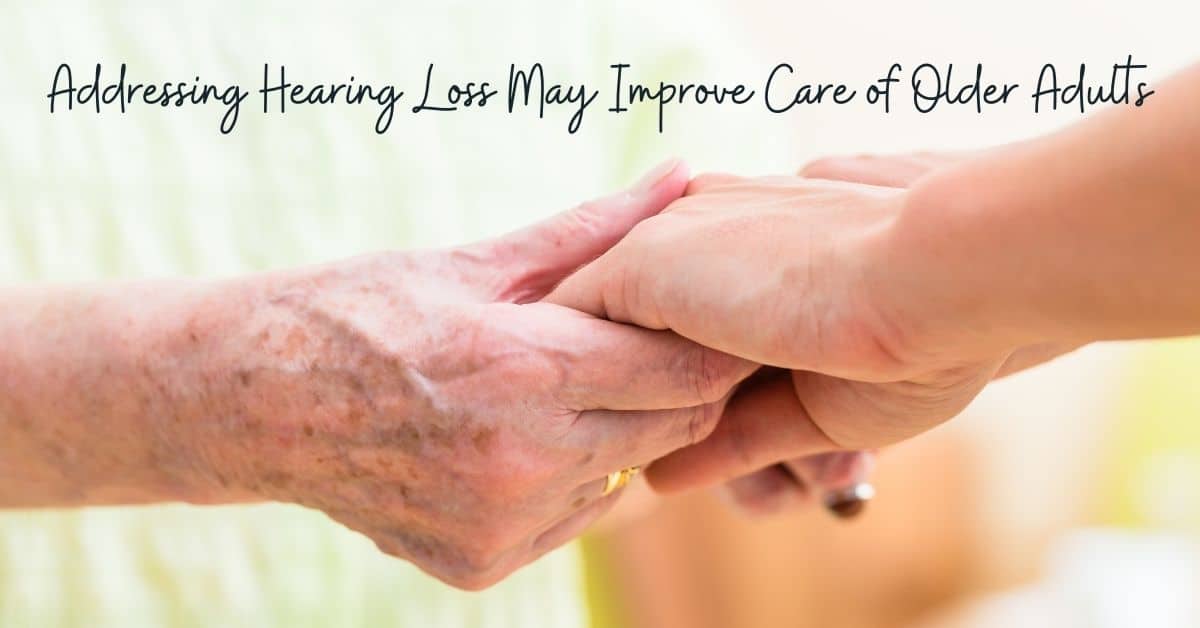- How You Can Treat Tinnitus - May 15, 2024
- Everyday Objects That Can Cause Hearing Loss - May 5, 2024
- The Impact of Smoking and Alcohol on Hearing: Breaking Down the Risks - April 28, 2024
Although clinics, hospitals, and rehab facilities are nerve-wracking for anyone, they are incredibly daunting for older adults who may have hearing problems. More research is now being conducted on the care of older adults, and how, if their hearing loss was understood and treated, that care could be improved.
Hearing loss and older adults
The World Health Organization has established that hearing loss affects almost a third, about 32 percent, of the world’s population over 65. Hearing loss is now the fourth major long-term condition worldwide. But medical professionals haven’t often been trained on how to communicate with older adults who have hearing loss.
Treatment at a medical facility is frequently given in places with machines whirring and beeping, and noise from other patients nearby. Their environments are tricky for those with hearing loss to understand what they are being told and what the effects of their choices for care are.
Those that are caring for elderly hearing loss adults should also take note. Many situations involve factoring hearing loss into the equation, attending doctor’s appointments, and day-to-day contact to even enjoy watching a TV show. Knowing about hearing loss helps caregivers help the person they care for live a happier and fulfilled life.
Ways of improving communication with those with hearing loss
Hearing loss is a sound processing problem. If the environment is right, individuals with mild to moderate age-related hearing loss can understand the word being spoken and have a general understanding of what is being said.
There are several things that medical staff and caregivers can do to help facilitate communication.
- Before you begin speaking, say the individual’s name. This will center their attention, and the first couple of words will not be missed.
- Don’t talk too fast or use long compound sentences. Pause between sentences, and watch the patient’s face to gauge understanding of what you have just said.
- Keep your hands away from your face so that their vision is not obstructed.
Advice for medical practitioners
- Hospitals should consider providing older patients with assistive hearing aids, and when admitting older patients, screening for hearing difficulties should be routine.
- Ask the patient if they understand what they are saying.
- During this pandemic where everyone is wearing a mask, communication can even be in written form, like on a whiteboard, if appropriate.
- If a patient understands and is accustomed to talking in sign language, use an interpreter.
Advice for caregivers
- Be patient. Learn about the challenges hearing loss brings to those who have it. This will help you to be empathetic to the individual’s thoughts and emotions in your treatment.
- From looped public areas to hearing care providers to organizations that can assist with the cost of hearing aids, many publically-available services can help the individual in your care. Learn about how these can help the older adult.
- Educate yourself about hearing loss so that you can discern between fact and fiction.
- Making minor adjustments can alleviate frustration in the home environment and allow the person in your care to feel more independent. These include amplified telephones, flashing or vibrating alarms, and assistive listening devices (ALDs) unique to the television.
- To find out what works best for them in terms of communication, speak to the person you care for. E.g., do they prefer you to talk about one ear versus the other, or is it easier for them if they can see your lips move?
Possibly the best thing you can do to help the person in your care with hearing loss is to help them get hearing help. For many people who have moderate to extreme hearing loss, hearing aids are a great option, and you may be astounded by how much more self-sufficient the older adult can be with a little hearing assistance.
Take the chance to book a hearing test and consultation appointment with us. Once you have a precise diagnosis of their hearing capacity, they can begin on the road to better hearing.

